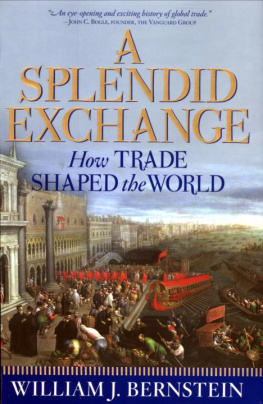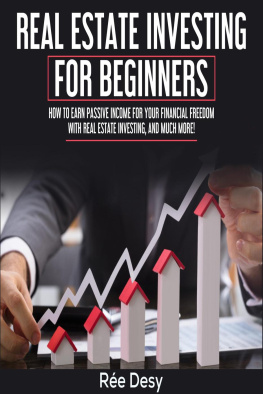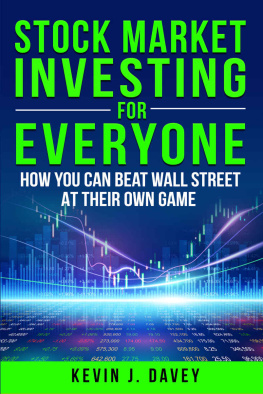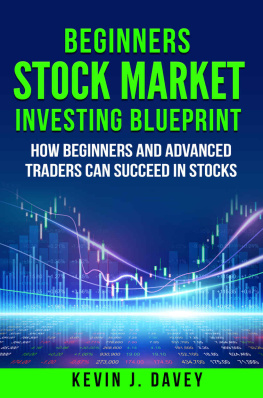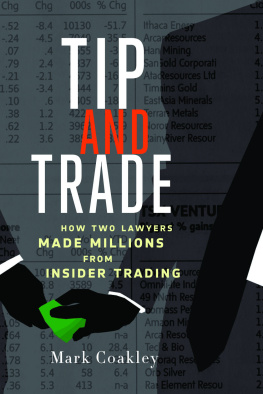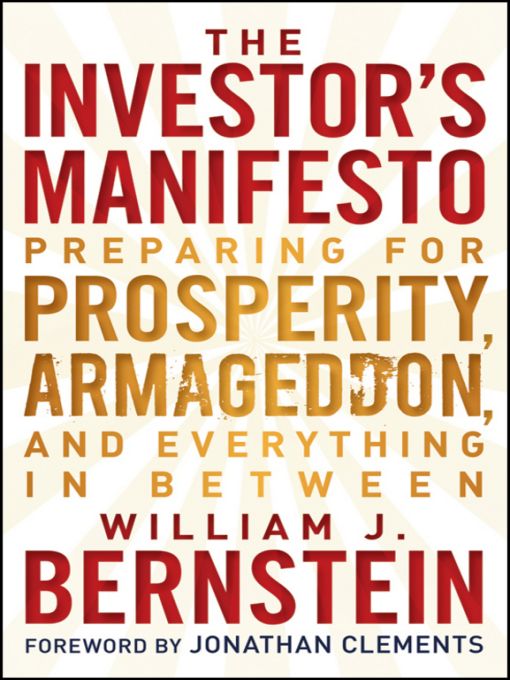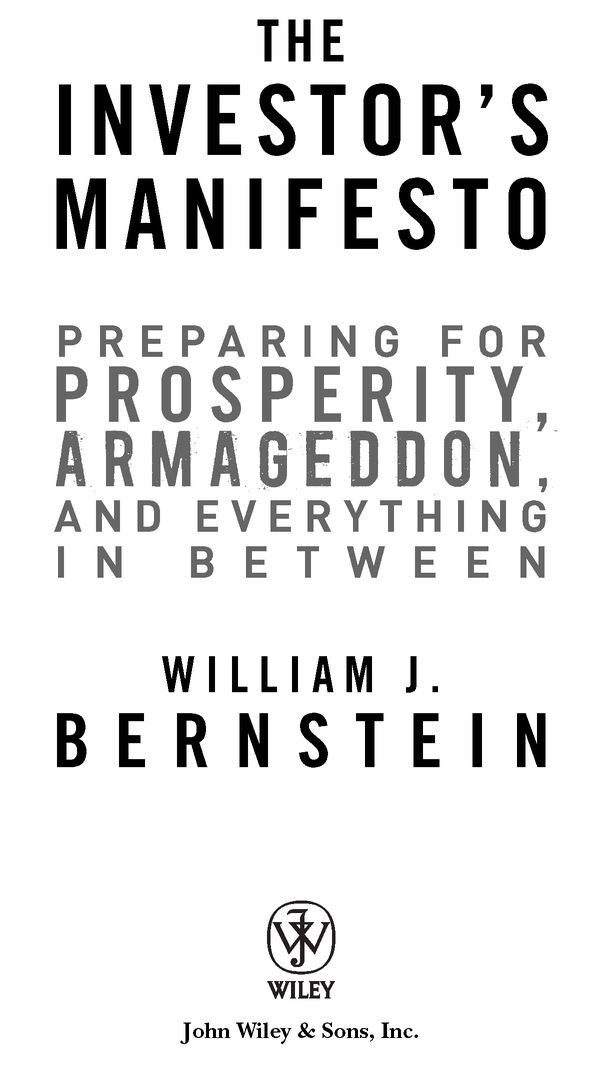Table of Contents
To Kate, Johanna, and Max:
May they find this useful.
Foreword
Bill Bernsteininvestment advisor, neurologist, economic historian, bestselling author, thinking persons financial guruis perhaps the smartest man I know. And, fortunately, he is also one of the most approachable. Indeed, during my 13 years as the Wall Street Journal s personal- finance columnist, he was the source I invariably turned to when the well ran dry.
So, Bill, whats on your mind these days? I would croon down the telephone, hoping a certain jocularity would mask my desperation as yet another column deadline loomed. Bill, thank goodness, almost always delivered. Because he had turned his considerable intelligence to the financial world relatively late in life, he had enthusiasm and insights that eluded the rest of us, who had grown jaded from watching the Wall Street money-go round for too long.
You will discover that enthusiasm and those insights in The Investors Manifesto, delivered in plain English and with a touch of hyperbole and a helping of humor. Bill and I do not agree on everything, but there is one thing we are both convinced of: The recent economic and market debacle is a great teachable moment, to steal Bills phrase from the preface, and it may represent the best investment opportunity in a generation.
So what should you learn from the 2008-2009 financial collapse? You will get Bills take in the pages that follow. To get you warmed up, here I highlight five importantbut perhaps less obviouslessons.
1.
Many of us are not as brave as we thought.To earn high returns, we need to take high risks. The stock market sure seems risky in 2009, which is a reason for optimism. But even if stocks deliver healthy gains over the next few years, we may not reap the reward if we make panicky decisions in the face of market turmoil.
Have you got what it takes to be a successful stock-market investor? This may be the best chance you will ever get to assess your stomach for risk. If you calmly rode out the 2008-2009 decline, maybe you can indeed live with a stock-heavy portfolio. But if you were terrified by both the economic turmoil and your own investment losses, perhaps you should move toward a more conservative investment mix in the years ahead.
2.
Leverage can sting.Many of us engage in mental accounting, associating the auto loan with the car, the mortgage with the house, and the credit-card balance with the wild weekend in Cancun. Yet, once we have incurred these debts, they effectively leverage our entire finances. This simple truth has lately been hammered home, as the past decades borrowing binge ran smack into the brutal decline in stock and home prices.
Lets say you went into 2008 with a $400,000 house, a $200,000 stock portfolio, and $300,000 in debts. Your stock portfolios value might have tumbled to $100,000 and your home might have dropped to $350,000, for a stinging 25 percent decline in your combined assets. But what really stung was the hit to your net worth, which is your total assets minus your total liabilities. That would have fallen a staggering 50 percent.
3.
Our homes likely will not pay for our retirement.The recent collapse in the housing market should have finally killed off the popular notion that you cant go wrong with real estate. Even if folks are no longer banking on double-digit annual housing gains, they often still view their homes as part of their retirement nest eggs.
To be sure, upon quitting the work force, we could unlock some of our home equity by trading down to a smaller place or taking out a reverse mortgage. But buying and selling real estate is not cheap, and reverse mortgages come loaded with fees. Moreover, we have to live somewherewhich means our homes are best viewed as a consumption item, not as an investment.
4.
We need to save. Duh.If we cannot bank on double-digit annual housing gainsor, for that matter, double-digit stock-market gainswhat should we do? Thats an easy one: We probably ought to be saving like crazy.
Indeed, with any luck, the recent economic turmoil will nix some of the silly justifications for Americas pitifully low savings rate. In the 1990s, financial experts told us we did not need to save because our stock portfolios had grown so fat. In the current decade, experts assured us we did not need to save because our homes were worth so much.
Since then, of course, our stock portfolios and our homes have plummeted in value. It turns out the fabulous stock returns of the 1990s, and the glorious real-estate results of earlier this decade, were effectively borrowing from the futureand that future arrived with stomach - churning ferocity. The lesson: Do not use great investment returns as an excuse to cut back your savings rate, because great returns may be followed by wretched ones.
5.
Perhaps the smart money is not so smart.The earlier part of this decade was a time of great financial envy, as we watched the smart money buy into hedge funds, private equity, and other investments that were beyond the reach of ordinary investors. We imagined that they were getting mouth-watering returns, while we were left to invest in mundane mutual funds. Glorious returns? Alas, it did not turn out that way for those who invested with Bernie Madoff and his ilk.
But that is enough from me. It is time to listen to Bill. The odds are, you will be wiser for his wordsand maybe wealthier, too.
Jonathan Clements
Author, The Little Book of Main Street Money July 2009
Preface
I wrote my last investment book almost eight years ago, and I swore I would never write another. That was for two reasons.
The first was that finance is a relatively circumscribed field; not that much is really known for certain. The body of knowledge that the individual investor, or even the professional, needs to master is pitifully small. If most finance academics were asked to compile a body of truly essential scholarly articles, their lists would generally not be more than several dozen long. On the other hand, put the average doctor, social worker, or scientist to that task, and the required reading would fill many shelves, if not whole rooms. In short, I had said most of what I needed to say about finance in my first two books. Until now.
The financial meltdown of 2008-2009 drastically changed the investment landscape, and if there ever was a time to leapfrog my previous books, it is now. This is a teachable moment, and I intend to use it to clearly and concisely enunciate a set of timeless investment principles.
In 1934, the father of the science of modern value investing, Benjamin Graham, wrote a great brick of a book, Security Analysis, which spelled out todays commonly accepted techniques for evaluating stocks and bonds, and it remains to this day required reading for anyone seriously interested in finance. As with any comprehensive, variegated work, it strikes individual readers in different ways.
Grahams graceful prose and methodical composition bowled me over, a shining exemplar for any financial writer. He illuminated a devastated investment terrain of the battered stocks and bonds of the nations once-mighty corporations strewn about and nearly available for the takingin short, an environment not unlike todays.



